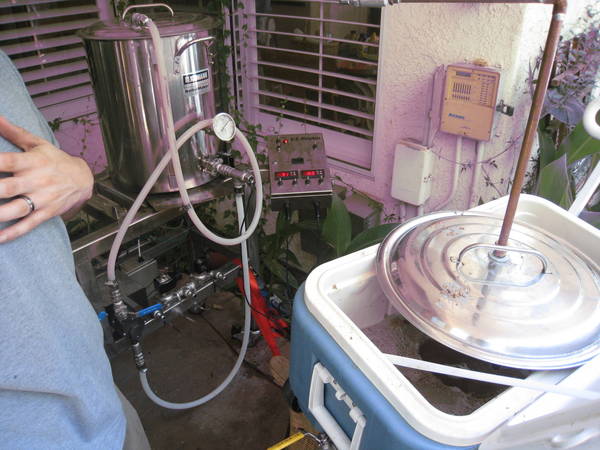korndog
Well-Known Member
Well, my buddy and I did a first time triple decoction for a Pilsner yesterday. I use a continuous recirculating mash. After the first decotion, we were stuck.
I used my barley crusher at factory setting. It looks like this was due to crush and compaction and not an equipment issue. We did end up transferring to a cooler and all was good. Loooong day!! Anybody have issues with decoctions and stuck mash?
Note to self: Keep rice hulls on hand.
Here is my fancy rig in action. Notice the precision sparging rig.

I used my barley crusher at factory setting. It looks like this was due to crush and compaction and not an equipment issue. We did end up transferring to a cooler and all was good. Loooong day!! Anybody have issues with decoctions and stuck mash?
Note to self: Keep rice hulls on hand.
Here is my fancy rig in action. Notice the precision sparging rig.















































![Craft A Brew - Safale BE-256 Yeast - Fermentis - Belgian Ale Dry Yeast - For Belgian & Strong Ales - Ingredients for Home Brewing - Beer Making Supplies - [3 Pack]](https://m.media-amazon.com/images/I/51bcKEwQmWL._SL500_.jpg)










